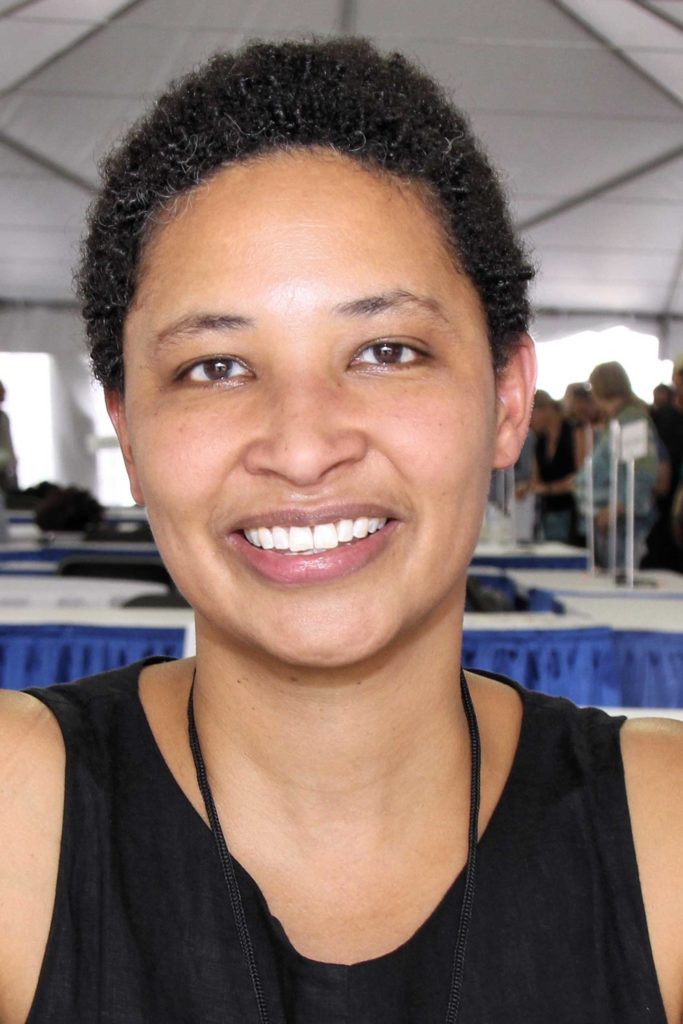Nonprofit seeks reboot of Mass. democracy
Group aims to make voting, electoral process more inclusive

Massachusetts is the lowest-ranking state for African American voter registration, according to a report released by a new nonprofit called Partners in Democracy.
Using a series of 10 indicators of democracy health, the report, titled the Massachusetts Democracy Scorecard, also found the state lacking in racial parity in voter turnout and the number of contested elections that provide voters with multiple choices of candidates.
The organization, founded by Danielle Allen following her 2022 gubernatorial bid, is focused on addressing issues around voting and democracy in Massachusetts. Its democracy scorecard uses what the organization calls the “360° Democracy Standard.” That standard sets goals around the right to vote, the right to run and the right to see and shape one’s community.
“Coming out of [Allen’s] gubernatorial run, she had really noticed a lack of awareness around a lot of the gaps that exist in Massachusetts around participation in democracy,” said John Griffin, managing partner for strategy at Partners in Democracy. “She’d seen a lot of activists and people that she had on her campaign who were pointing out a lot of really glaring [gaps]. What we wanted to do was put that into a more digestible visual format and also have a real analytical rigor to think about, where are there actual areas where Massachusetts needs to improve in how its democracy functions?”
The indicators themselves — which include things like accessibility of voting, availability of choices in an election and parity in voter turnout, as well as others that are less focused on elections, like strength and breadth of press coverage — were developed by Griffin and Allen and then assessed and workshopped in light of existing data and in partnership with communities around the state.
Over a matter of months, the indicators were clarified and reworked as the organization determined what stories needed to be told.
“We knew we wanted to talk about voter turnout, but the question was, ‘What are the correct ways to think about how to do that in Massachusetts?’” Griffin said.
As an example, he said, “The initial question was, ‘How high is turnout in Massachusetts as compared to other places?’ Then when we dug into the data, we saw that an important story to tell here is the huge disparities that exist based on geography of where you are and how geography relates to race.”
According to the report, in 2020, Black turnout was 36% — about half of white turnout, at 71%. In 2022, Black, Latinx and AAPI residents made up about 13% of votes, while accounting for more than 26% of the Massachusetts population.
The report also found that higher-turnout communities tended to be whiter and have higher median incomes.
The democracy health indicators also line up with the three prongs of the group’s 360° Democracy Standard, said Vandinika Shukla, the group’s deliberations manager.
“You will see that the health indicators are actually mapping onto the right to vote, the right to run, and the right to see and shape your community,” Shukla said. “So the health indicators are moving towards a holistic pathway for democracy renovation.”
Next steps
Following the release of the democracy scorecard, Partners in Democracy is meeting with community members from democracy reform groups, the business community, university students and residents in rural communities to assess what residents want to see change in the democratic system in the state, in a process they call deliberations.
“Our goal is to take this gap analysis and a set of proposed solutions directly to the community, and have conversations and participatory dialogue with them to understand, is this gap analysis representative of the challenges you’re facing? Are we missing something? What are you aligned with? How does this relate to the work that you’re doing on the ground and to your experience?” Shukla said.
He continued, “From that, we really come to a solution-focused conversation where we say, ‘Here’s a possible menu of solutions that we have along the right to vote, run, see and shape,’ and then we take the feedback on ‘Do these solutions feel right to you? Will they make a difference in your experiences and your work and your advocacy both on democracy [and] also across issues?’”
Possible solutions range from same-day voter registration and automatically mailing ballots to voters to “democracy vouchers” — a system that would allow voters to support candidates using vouchers that candidates could then redeem for public funds.
Partners in Democracy plans to conduct up to 10 conversations with each group they are focusing on in their first phase, before reviewing results and conducting another 10 per group in a second phase. The results of the deliberations could be packaged into a ballot initiative in 2024 or 2026.
In the meantime, the organization is also working with legislators and building a community among those working to reform democratic processes to work toward their common goal.
Throughout their efforts, the group is focused on iterative processes that allow them to get feedback to make their work and their processes better suited to the community.
“We’re using this first stage of the deliberations to inform both our overall strategy and how we continue with the deliberations,” Griffin said. “It’s really meant to give voice, in a structured way, to the people actually coming to them. … The idea is we want to build something that we think doesn’t exist right now, in which everyday people can come together and deliberate about how they think democracy should be fixed in Massachusetts, and so they have a lot of control in how that actually functions.”






